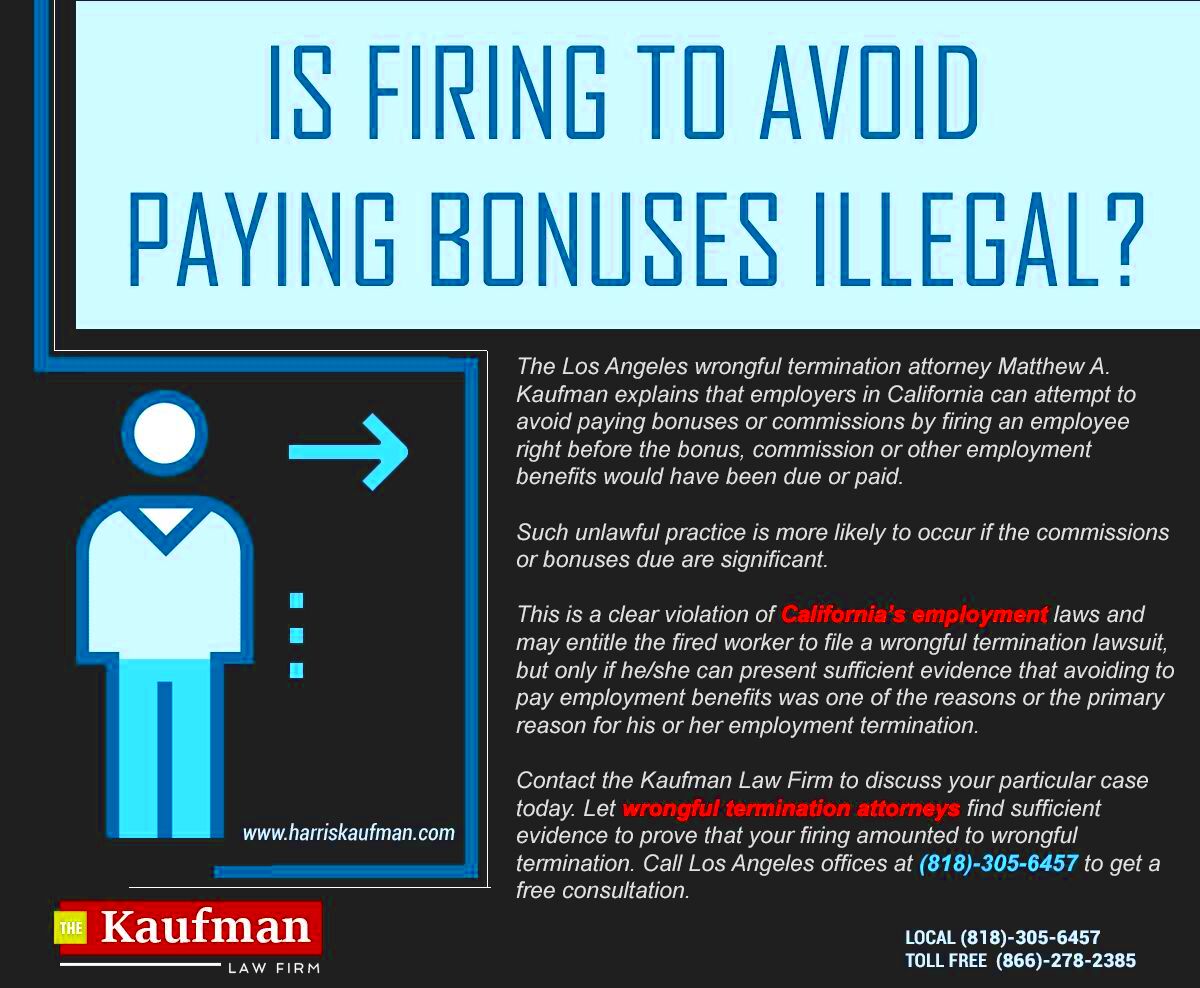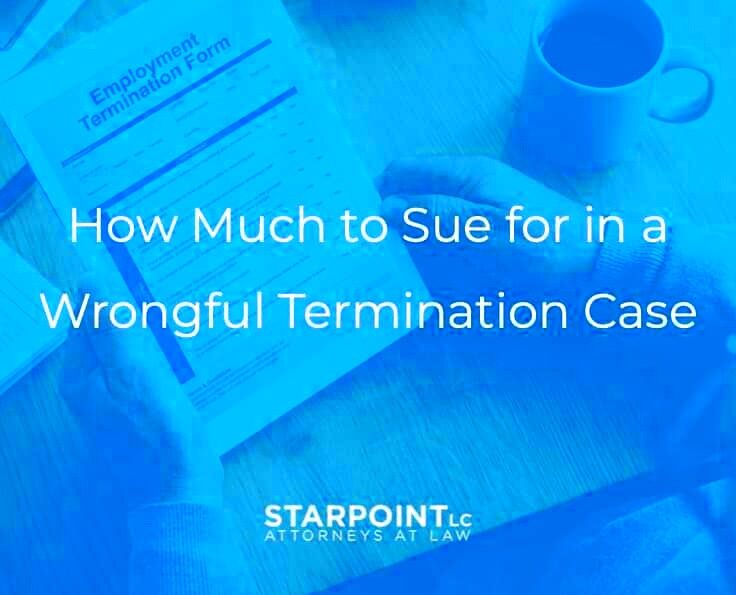How California Law Addresses Commission Pay After Termination
In California a common way to compensate employees is through commission pay particularly for positions in sales and other performance oriented roles. This structure allows workers to receive a share of the sales they bring in establishing a direct connection between their performance and income. For many individuals this serves as a source of motivation pushing them to strive for accomplishments and consequently increase their earnings. Nevertheless the nuances surrounding the management of commission pay especially during terminations can be rather intricate.
From what I’ve witnessed commission compensation can really impact a persons financial security. A buddy of mine in the real estate industry heavily depended on commissions. When he unexpectedly lost his job he found himself in a tough spot not knowing how the commissions he had earned but hadn’t received yet would be managed. This real life scenario highlights why it’s crucial to be aware of Californias rules about commission payments, particularly in situations involving termination.
California Laws on Commission Pay After Termination

California law has a position when it comes to commission payments after an employees departure. The California Labor Code states that if an employee is let go or decides to resign their employer is obligated to pay any commissions that have been earned. This is based on the fact that commissions are regarded as wages under California law and wages should be settled promptly upon termination.
According to the law commissions must be paid promptly similar to regular salaries. This implies that if you have accrued commissions but haven’t received payment upon departing from your job your employer is obligated to settle the outstanding amount. It’s a safeguard that guarantees employees receive everything they are entitled to highlighting Californias dedication, to upholding fair labor standards.
In real life this law can occasionally result in conflicts. For instance if there’s uncertainty regarding the commission earned or if the details of the commission agreement are unclear it could cause hold ups or differing opinions. To steer clear of issues employers need to be careful when determining and disbursing these sums.
When Are Commissions Earned?

Knowing when commissions are deemed as “earned” is important for employees and employers alike. Typically a commission is considered earned once the sale or transaction that it is tied to is finalized. To illustrate in the real estate industry a commission may be viewed as earned upon the closing of a sale rather than at the point of signing a contract.
There are some subtleties to consider here. According to California law commissions are earned in accordance with the conditions outlined in the employment contract. If the contract states that a commission is awarded upon reaching specific milestones then those conditions come into play. Its crucial for both sides to have a clear understanding and mutual agreement on these terms to prevent any conflicts.
From what I’ve seen having a commission structure in place can really impact how payments are managed. When the commission agreement is clear it makes it easier for both the employer and employee to understand the expectations and payment timelines. This transparency helps avoid any confusion or potential legal problems later on.
What Happens If You’re Terminated Before Receiving Your Commission?

Picture putting in effort to close those important deals only to discover that your job is ending before you get your deserved commission. This situation happens more often than you think and it can be quite overwhelming. In California the law safeguards employees facing this situation. If you are let go your employer is still required to compensate you for any commissions earned prior to your termination.
I’ve witnessed this predicament among my coworkers. A friend of mine who was in a sales role was let go right before his commission payment was scheduled. It was a situation but he managed to get his commission with assistance, from a lawyer showing how crucial it is to be aware of your rights and take action.
In case you find yourself facing this scenario it’s essential to maintain thorough documentation of your sales and any arrangements pertaining to your commissions. Having this paperwork can prove invaluable in safeguarding your rightful earnings.
Legal Remedies for Unpaid Commissions
If your commissions aren’t paid on time, California law offers various options to help you get your wages back. Should your employer neglect to disburse the commissions owed, you have the right to take measures to recover what you rightfully deserve. Here’s a quick overview of the actions you can take and the remedies at your disposal.
- File a Wage Claim: You can file a claim with the California Division of Labor Standards Enforcement (DLSE). The DLSE handles wage disputes and can help you recover unpaid commissions.
- Seek Legal Counsel: Consulting with an employment attorney who specializes in wage and hour law can provide you with tailored advice and representation. An attorney can help you navigate the complexities of your case and represent you in legal proceedings if necessary.
- Consider Small Claims Court: For smaller amounts, you might be able to resolve the issue through small claims court. This option is often faster and more accessible than other legal avenues.
I believe it’s wiser to address the problem with your boss first rather than taking it to court right away. A conversation can often help sort things out. That said being aware of your rights is important so you’re ready to take action if needed.
Steps to Take If Your Commission Pay Is Withheld
Discovering that your commission payment is being held back can be both exasperating and perplexing. Here’s a simple way to navigate through this scenario.
- Review Your Agreement: Go through your commission agreement to understand the terms and conditions. Ensure you have met all the requirements for earning and receiving your commission.
- Document Everything: Keep detailed records of your sales, communications with your employer, and any relevant agreements. This documentation will be crucial if you need to take further action.
- Contact Your Employer: Reach out to your employer or HR department to discuss the issue. Sometimes, there may be an administrative error or misunderstanding that can be resolved through communication.
- File a Complaint: If direct communication does not resolve the issue, consider filing a formal complaint with the California Division of Labor Standards Enforcement (DLSE).
- Seek Legal Help: If all else fails, consult with an employment attorney. They can provide expert advice and assist in taking legal action to recover your unpaid commissions.
From what I’ve seen confronting problems directly and having a well thought out strategy usually brings about a solution. It’s about taking the initiative and being knowledgeable making sure that your rights are protected and that you get what you deserve.
Employer Responsibilities Regarding Commission Pay
In California employers have obligations regarding commission pay that are aimed at safeguarding the rights of employees. If you are earning a commission it is crucial to be aware of what your employer must do to ensure you receive fair compensation.
To begin with, it is crucial for employers to stick to the conditions laid out in the commission agreement. In other words if your agreement specifies that you should receive a commission after closing a deal your employer is obligated to honor that promise. Additionally employers should present clear and precise earnings statements making sure that all calculations are transparent and just.
I remember a time when a buddy of mine faced a challenge at his job in sales. His company held back on payments citing some problems. But thanks to the terms in his contract and his determination to follow up he eventually received the money he was owed. This situation really emphasized the significance of being aware of your rights and having a solidly documented agreement.
Employers must also settle commissions promptly upon termination. If you have accrued commissions prior to the end of your employment they should be disbursed without any hold ups. This applies to cases where you resign from the company or are let go. Neglecting to do so could lead to repercussions for the employer.
Basically employers need to stick to their part of the deal and make sure all payments are done as per the contract and the law.
Common Misconceptions About Commission Pay After Termination
There are quite a few misunderstandings surrounding commission pay, particularly when it comes to the consequences of an employees termination. Its important to address these misconceptions to ensure that both employees and employers are treated fairly.
- Misconception 1: “If I’m terminated, I don’t get paid for any commissions until my final paycheck.” This isn’t true. In California, commissions earned before termination are owed to you and should be paid out promptly.
- Misconception 2: “Commissions are only paid if the sale is fully processed before termination.” This can be misleading. Commissions are typically earned when the sale is completed according to the terms of your agreement, not necessarily when payment is received.
- Misconception 3: “Employers can withhold commissions if they claim there’s a dispute about the sale.” While there might be disputes, withholding commissions without proper documentation or justification is against the law.
In my opinion these misunderstandings usually stem from miscommunication or a failure to convey information effectively between employers and employees. I recall a coworker who believed that commissions were only disbursed after a lengthy procedure. However her perception was rooted in inaccurate details. Addressing these misconceptions is crucial, for both sides to prevent unnecessary disputes.
FAQs About Commission Pay After Termination
Clarifying common inquiries regarding commission compensation post termination can offer insights and assist both workers and employers in handling these scenarios more smoothly.
- Q: What if my employer refuses to pay my commission after I’ve been terminated?
- A: In California, your employer is legally obligated to pay any earned commissions upon termination. If they refuse, you can file a complaint with the California Division of Labor Standards Enforcement (DLSE) or seek legal advice.
- Q: How can I prove that I’m entitled to commission pay?
- A: Keep detailed records of your sales, the terms of your commission agreement, and any correspondence related to your commission payments. This documentation will be crucial in proving your claim.
- Q: Can my employer deduct fees or charges from my commission pay?
- A: Generally, employers cannot deduct fees or charges from your commission pay unless explicitly stated in your commission agreement. Any deductions should be clearly outlined and agreed upon in writing.
- Q: What should I do if I have a dispute over my commission pay?
- A: First, try to resolve the issue directly with your employer. If that doesn’t work, consider filing a complaint with the DLSE or consulting with an employment attorney to explore your legal options.
The purpose of this FAQ section is to tackle questions and offer assistance on dealing with commission payment issues post termination. Having well defined responses and understanding your entitlements can greatly impact the resolution of these matters.
Conclusion
Grasping the ins and outs of commission pay, especially when it comes to termination, is vital for both employees and employers. California has laws in place to safeguard workers ensuring they receive what they rightfully deserve even if their job ends unexpectedly. Based on my own experiences and observations I’ve witnessed the significance of having agreements and maintaining meticulous records. Whether you’re an employee eagerly waiting for your commission or an employer overseeing these payments clear communication is essential. In case any issues arise being aware of your rights and available remedies can assist in resolving conflicts and ensuring fair treatment. Ultimately staying well informed and proactive can greatly impact how effectively commission pay matters are handled.


